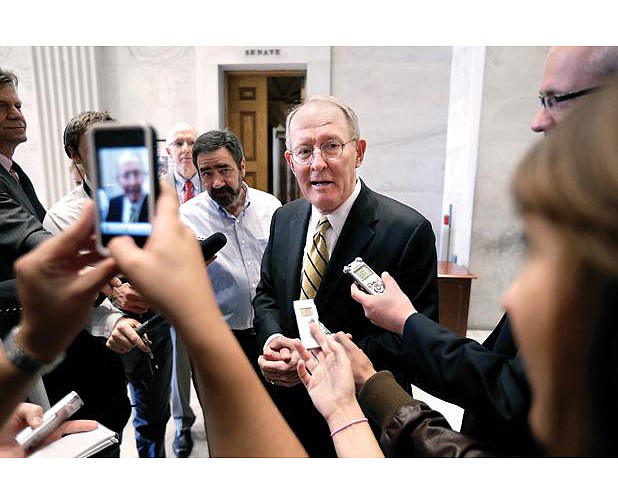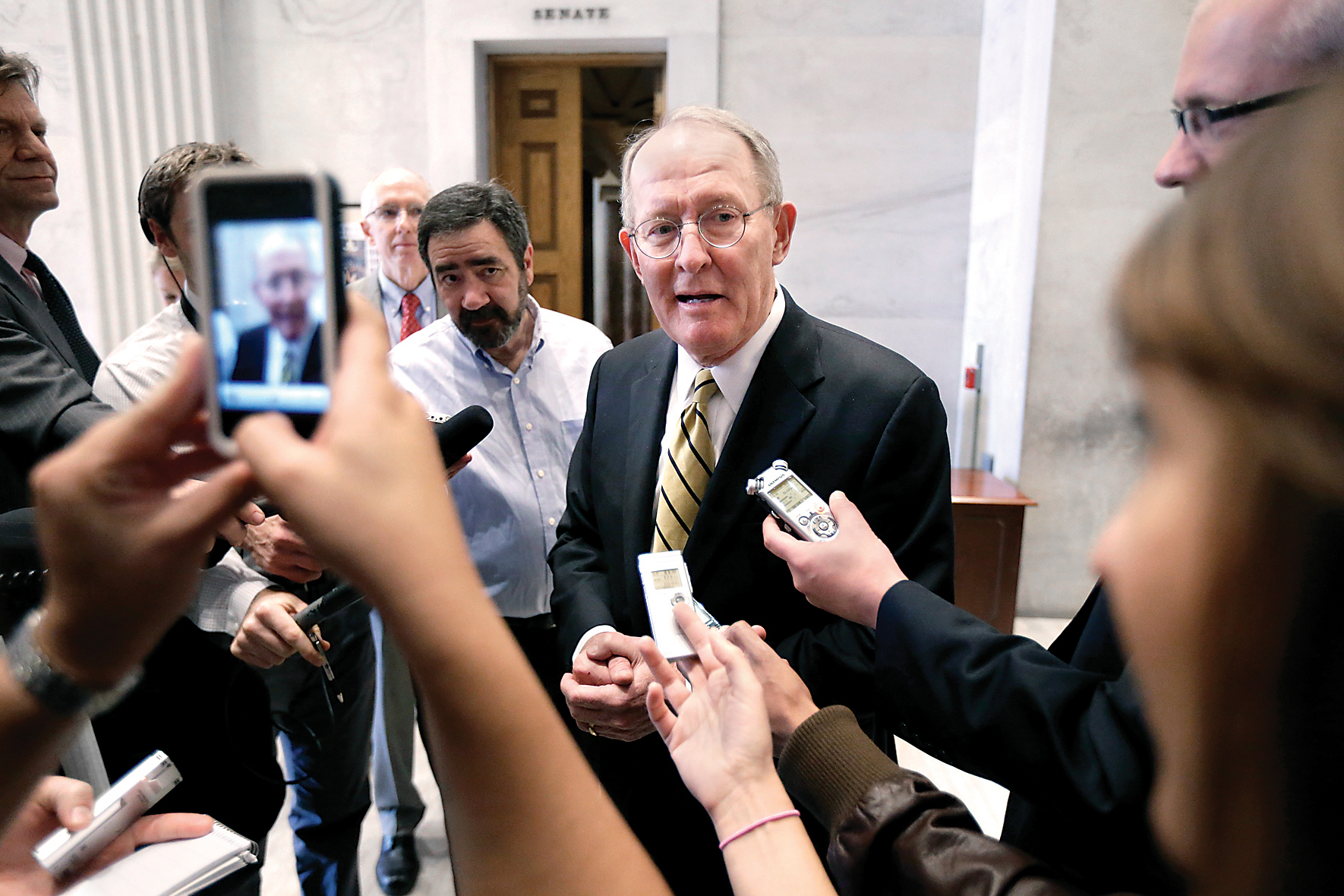A 'grand swap' reverie
Friday, January 1, 1904
The shell game that Republicans play on health care costs, and who gets the bill, is seemingly never ending. Tennessee's senior U.S, senator, Lamar Alexander, dipped into that dodge once again Wednesday when he made a pitch to the new state Legislature for the "grand swap" idea that he originally proposed when he was Tennessee's governor and Ronald Reagan was president.
His swap proposes to have the federal government take over all the costs of Medicaid, the health insurance program provided for Americans below or just a bit above the federal poverty level. In return, Alexander's pan would have states picking up all their education costs, and current federal funding for schools would be eliminated.
That's hardly a grand idea. It would reward states with a new pot of money for all the harm that have done to their citizens on the health care front.
Before the Affordable Care Act was passed by a Democratic controlled Congress two years, Tennessee and many other states zealously protected their health insurance industries from out-of-state competitors and competent regulation. They literally let lightly regulated insurers commit gross abuses both of their customers, and against the people most in need of health insurance: those to whom insurers denied insurance due to so-called pre-existing conditions; those whose insurance they canceled when they became seriously ill; and those whose pocketbooks they egregiously raided to boost their obscene executive-level profits.
As a result, the health insurance industry's profits soared along with the cost of abused fee-for-service care models and price-gouging pharmaceutical companies. So now, the United States spends nearly 19 percent of gross domestic product on spotty health care, while 50 million citizens go uninsured. Meanwhile, other modern industrial countries spend from just 8 to 12 percent of GDP on universal-care systems where no one goes without comprehensive care, and where health indices for wellness and longevity are notably superior to ours.
The ACA has begun to rein in insurer-and-medical industry's pricing and coverage abuses. And when it's fully implemented next January, new comprehensively regulated insurance exchanges will allow all comers in need of affordable insurance to purchase flat-rate, comprehensive insurance at competitive prices, and without the bans of pre-existing conditions and annual or lifetime coverage limits. Most Americans who use the exchanges will qualify, as well, for federal wage-adjusted subsidies to purchase their insurance.
Tennessee's partisan lawmakers and Gov. Haslam have rejected their opportunity to establish state-managed insurance exchanges, choosing instead to let the federal government do that work. But they haven't decided whether to accept federal funds to help expand Medicaid (TennCare in Tennessee) to the uninsured with incomes between 100 and 150 percent of the federal poverty level.
That's cruel. The ACA would cover all the new Medicaid cost for that expansion for the first three years, and 90 percent thereafter. Though Alexander's "grand swap" is clearly a nonstarter under the Obama administration, it would be attractive to the state, now that the cost damage is done, because it would take the state's cost of health care off lawmakers' hands.
The federal government generally pays two-thirds of the cost of Medicaid/TennCare. States pick up the other third. Thus Tennessee currently pays around $2.93 billion of TennCare's $9.27 billion budget.
Medicare/TennCare is largely seen as simply providing routine care for the poor, but by national figures, Medicaid spends the largest chunks of its budget to provide care to severely disabled Americans (roughly 40 percent). It also to provides care for the acutely ill elderly (20 percent). And it covers nursing home care for both the poor and for most middle-class recipients who have spent down their savings. Medicaid's care for poor children, by contrast, consumes less than 20 percent of its funds.
The state's indecision on the Medicaid expansion offer shows precisely how little its leaders care not just for the fifth of Tennesseans who receive TennCare, but also for the working poor who would be covered under the offered expansion of Medicaid. Yet it's merely a dream that state leaders could terminate that nexus under Alexander's "grand swap," and shift all the cost burden they helped build to Washington.

